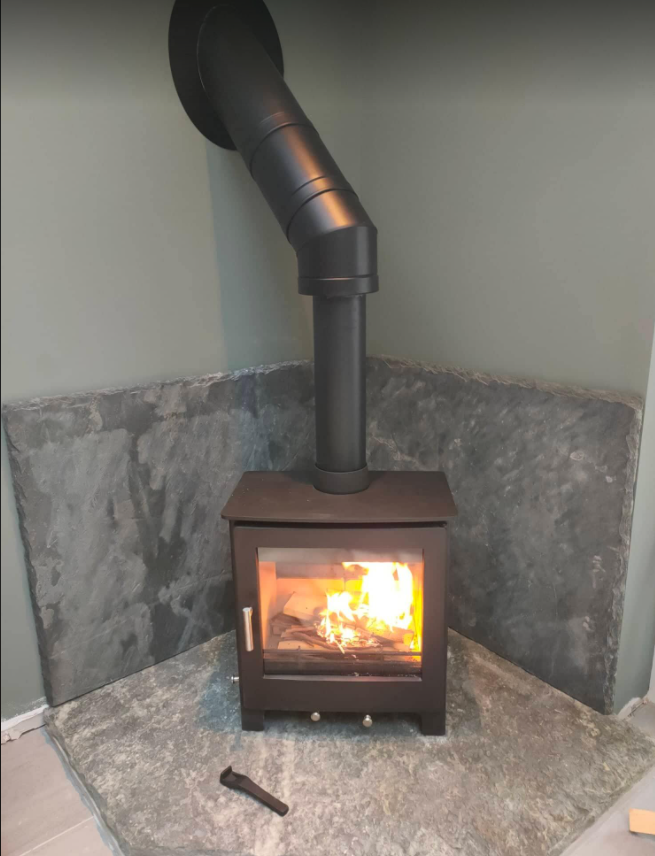Multi-Fuel Stove DIY vs. Professional Installation: What’s Right for You?: Any home would benefit greatly from the warmth, ambience, and fuel choice that multi-fuel stoves offer. The first big choice you’ll have to make is how to manage the installation, whether you’re adding a comfortable element to your living area or improving your heating system. Is it better to employ a professional or do it yourself? This guide will help you choose the best course of action by weighing the advantages and disadvantages of each strategy.
Knowing About Multi-Fuel Stoves
Let’s take a quick look at what makes multi-fuel stoves special before getting into installation techniques. Multi-fuel stoves, as opposed to conventional wood-burning stoves, have the ability to burn a range of fuels, such as coal, wood, and even peat. Although their installation frequently necessitates careful attention due to their specialized venting, hearth, and clearance requirements, this flexibility can make them more cheap and efficient.
DIY Installation: Benefits and Drawbacks
It can be tempting to install a multi-fuel stove yourself, particularly if you like doing things by hand. The following are the main benefits and drawbacks:
Benefits of Do-It-Yourself Installation
Cost Savings: You can save a lot of money by avoiding paying professional labor rates.
Personal Satisfaction: Installing your stove successfully can be quite fulfilling.
Flexibility: By working at your own pace, you can avoid the lengthy wait times that come with hiring a professional.
Drawbacks of Do-It-Yourself Installation
Technical Expertise Needed: Installing a stove requires intricate work that includes fixing a flue, making sure there is enough ventilation, and adhering to building requirements.
Risk of Errors: Inadequate installation can result in structure damage, chimney fires, and carbon monoxide leaks, among other safety risks.
Time-consuming: Inexperienced people may find that the process takes a lot longer than expected.
When Doing It Yourself Could Be a Good Idea
A do-it-yourself technique might be successful if you have previous expertise with comparable tasks or if the installation requirements for your stove are really simple (for example, no structural alterations are required). To make sure your work complies with local laws, you should always check them.
Benefits and Drawbacks of Professional Installation
You can eliminate a lot of uncertainty by hiring a qualified expert to install your multi-fuel stove. The primary benefits and disadvantages are as follows:
Benefits of Expert Installation
Safety First: Experts possess the knowledge and skills necessary to guarantee that your stove is placed securely and in accordance with all laws.
Efficiency: Compared to most do-it-yourselfers, a professional can finish the task more quickly and effectively.
Protection of Warranties: In order to verify warranties, several stove manufacturers demand professional installation.
Peace of Mind: Knowing that the task was completed successfully allows you to relax.
Drawbacks of Expert Installation
Increased Cost: Depending on the complexity of the task, the cost might range from several hundred dollars to more, which is the main drawback.
Scheduling Difficulties: You may have to wait longer to use your stove since you will need to coordinate with the installer.
When You May Benefit from Professional Installation
Hiring a professional is highly advised if your installation calls for structural modifications, intricate venting systems, or rigorous adherence to building requirements. It’s also a smart option for people who prioritize safety and convenience over financial savings.
Important Things to Think About
There are a few important things to consider whether you decide on a do-it-yourself or professional installation:
Codes & Regulations for Buildings: Always check your local legislation. Installation of stoves is subject to permissions or inspections in several places.
Materials and Tools: Specialized tools may be needed for a do-it-yourself installation, which could raise the cost.
Time and Effort: Assess your abilities and the amount of time you can commit to the project with realism.
Safety: The safety of your family comes first. Hiring a professional is the best option if you have any doubts about any part of the installation.
In conclusion
Your budget, degree of skill, and comfort level with complicated jobs will all play a role in your decision to have your multi-fuel stove installed professionally or do it yourself. Even while doing it yourself can save money and give you a sense of accomplishment, you should consider the hazards and make sure you have the necessary tools. However, most homeowners find that professional installation is a better option since it provides safety, efficiency, and peace of mind.
The option that best suits your needs and guarantees a secure, effective installation is ultimately the best one. A multi-fuel stove will provide warmth and character to your house for many years to come, regardless of the path you take.


